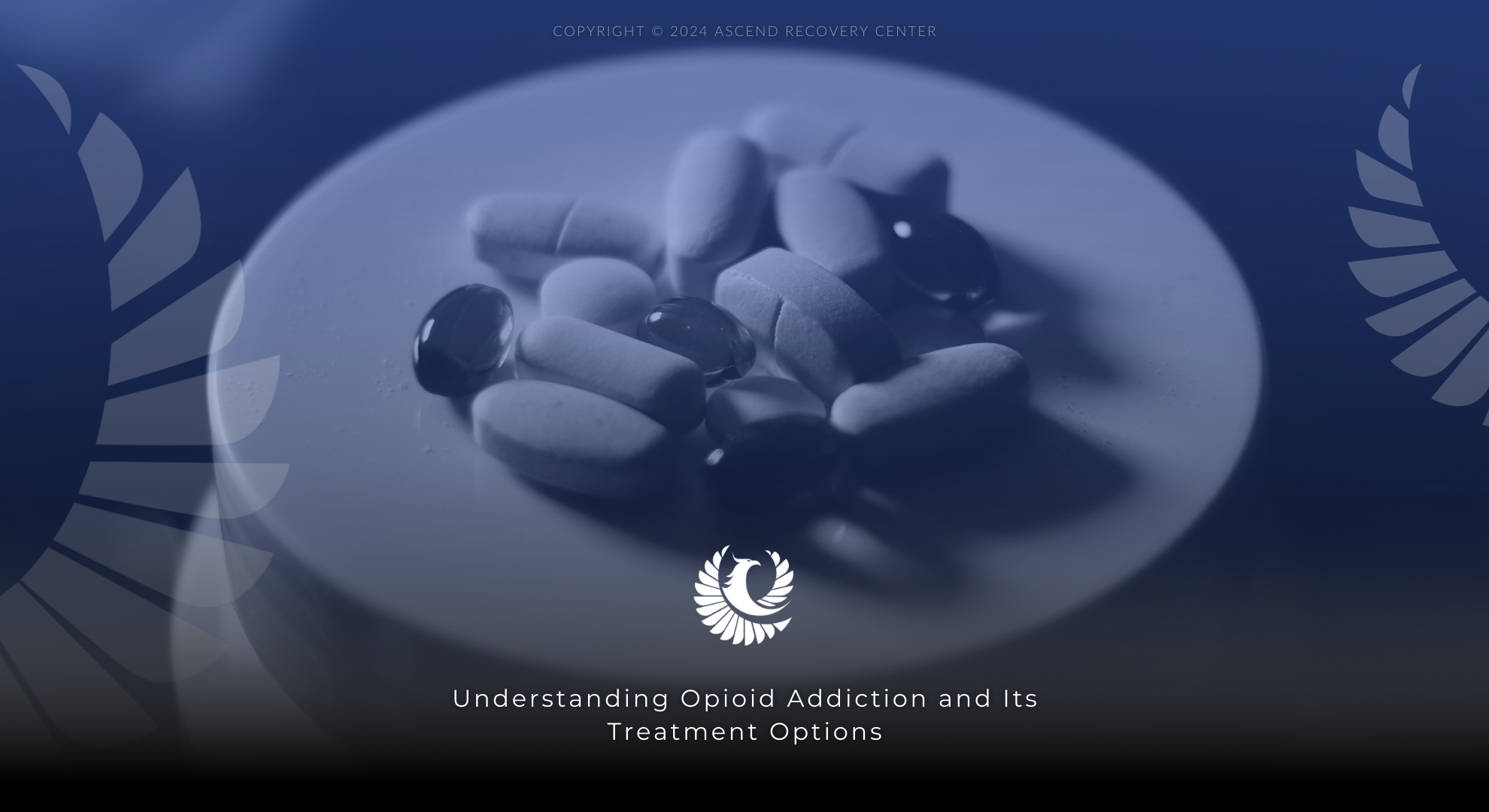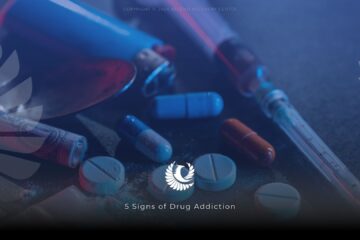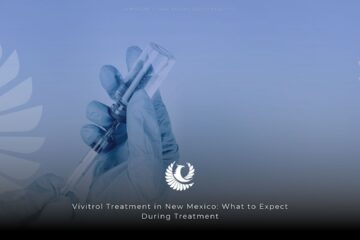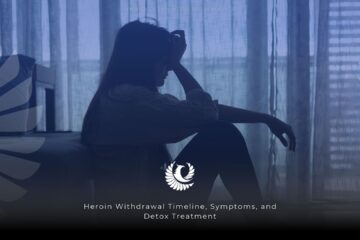Opioid addiction is a serious and complex medical condition that affects individuals and communities worldwide. Characterized by the compulsive use of opioid drugs, even in the face of negative consequences to health and well-being. The use of opioids, whether prescribed legally or obtained illegally, can lead to opioid use disorder (OUD), which has significant impacts on physical and mental health.
Fortunately, early intervention and proper treatment can help individuals recover from opioid addiction and manage their condition effectively. We will explore the different aspects of opioid addiction, including its causes, symptoms, and available treatment options. We will delve into evidence-based approaches and medications used in the treatment of opioid addiction. As well as the importance of counseling and behavioral therapy in supporting recovery.
Understanding Opioids and Opioid Use Disorder (OUD)
To understand opioid addiction, let’s first define opioids. Opioids, also known as narcotics, are a class of drugs that include prescription pain relievers. Also known as oxycodone, hydrocodone, fentanyl, and tramadol, as well as illegal drugs like heroin. Prescription opioids are used to manage severe pain resulting from injuries or medical conditions like cancer, they carry the risk of misuse and addiction.
Opioid use disorder (OUD) is a condition characterized by the problematic pattern of using opioids. OUD can cause distress and impairment in an individual’s life, affecting their physical and emotional well-being. It is important to note that OUD is a chronic brain disease, and individuals struggling with this disorder may experience changes in brain chemistry, leading to compulsive drug-seeking behaviors.
The Impact of Opioid Addiction
Opioid addiction has far-reaching effects on various aspects of an individual’s life, including their physical and mental health, relationships, and overall functioning. Prolonged and excessive opioid use can result in changes to brain circuits responsible for mood and reward behavior. Additionally, opioid misuse can negatively impact almost all of the body’s systems, leading to a range of health issues.
When individuals abruptly stop using opioids, they may experience withdrawal symptoms, which can be highly uncomfortable. These symptoms include cravings, diarrhea, large pupils, yawning, belly pain, chills, nausea, body aches, agitation, and severe mood swings. The intensity and duration of withdrawal symptoms vary depending on factors such as the type of opioid used, the duration of use, and the individual’s overall health.
Treatment Options for Opioid Use Disorder (OUD)
Treating opioid addiction requires a comprehensive approach that addresses the physical, psychological, and social aspects of the disorder. The goal of treatment is to help individuals overcome their addiction, manage withdrawal symptoms, and regain control of their lives. There are various treatment options available, including medication-assisted treatment (MAT) and counseling or behavioral therapies.
Medication-Assisted Treatment (MAT)
Medication-assisted treatment (MAT) is a widely recognized and evidence-based approach to treating opioid addiction. It involves the use of medications, in combination with counseling and behavioral therapies, to help individuals recover from OUD. MAT helps normalize brain chemistry, alleviate cravings, and prevent withdrawal symptoms, increasing the chances of successful recovery.
There are three commonly used medications in MAT for opioid addiction: methadone, buprenorphine, and naltrexone. These medications work in different ways to support recovery and are chosen based on individual needs and preferences. It is important to note that medication use as part of recovery is a personal medical decision, and the choice to include medication should be made in consultation with a healthcare provider.
1. Methadone
Methadone is a long-acting opioid agonist that is commonly used in the treatment of opioid addiction. It works by binding to the same receptors in the brain as other opioids, such as heroin or prescription painkillers. However, unlike these opioids, methadone does not produce the same intense euphoric effects or “high.” Instead, it helps to stabilize brain chemistry and reduce cravings, allowing individuals to focus on their recovery.
Methadone is typically dispensed daily in specialty regulated opioid treatment clinics, ensuring proper dosage and monitoring. It is important to follow the prescribed dosage and treatment plan closely. Methadone can interact with other medications and substances. Methadone treatment can be long-term. Individuals may safely take it for months, years, or even a lifetime under medical supervision.
2. Buprenorphine
Buprenorphine is another medication commonly used in MAT for opioid addiction. It is a partial opioid agonist, meaning it binds to the opioid receptors in the brain but produces a milder effect compared to full agonists like methadone or heroin. Buprenorphine is available in various forms, including tablets, sublingual films, injections, and skin patches, providing flexibility in treatment options.
One significant advantage of buprenorphine is its accessibility, as it can be prescribed or dispensed in physician offices. This availability increases access to treatment and allows individuals to receive care in a more convenient and less stigmatized setting. Buprenorphine helps to reduce cravings, prevent withdrawal symptoms, and minimize the risk of overdose, making it an effective choice for many individuals seeking recovery from opioid addiction.
3. Naltrexone
Naltrexone is a non-addictive opioid antagonist used in the treatment of opioid addiction. Unlike methadone or buprenorphine, it does not produce any opioid effects or alleviate withdrawal symptoms. Instead, naltrexone works by blocking the effects of opioids on the brain, preventing individuals from experiencing the euphoria associated with opioid use.
Naltrexone can be administered orally as a daily pill or as a monthly injection, offering flexibility in treatment options. It is important to note that individuals must be opioid-free for a period of 7-10 days before starting naltrexone treatment to avoid precipitating withdrawal symptoms. Naltrexone is often used as part of a comprehensive recovery program that includes counseling and other supportive services.
Counseling and Behavioral Therapies
In addition to medication-assisted treatment, counseling and behavioral therapies play a crucial role in supporting individuals’ recovery from opioid addiction. These therapies help individuals address the underlying factors contributing to their addiction, develop coping skills, and make positive changes in their thoughts and behaviors.
There are various types of counseling and behavioral therapies used in the treatment of opioid addiction, including:
1. Individual Counseling
Individual counseling provides a safe and confidential space for individuals to explore their feelings, experiences, and challenges related to opioid addiction. It involves one-on-one sessions with a qualified therapist or counselor who can support individuals in setting goals, addressing setbacks, and celebrating progress. Individual counseling may also address legal concerns, family problems, and other co-occurring mental health or chronic health issues.
2. Cognitive-behavioral therapy (CBT)
Cognitive-behavioral therapy (CBT) is a widely used therapeutic approach that helps individuals identify and change negative patterns of thinking and behavior. It focuses on understanding the connection between thoughts, emotions, and behaviors, and teaches individuals coping skills to manage stress, cravings, and triggers associated with opioid use. CBT is an effective tool in helping individuals develop healthier ways of thinking and responding to challenges in their recovery journey.
3. Motivational Enhancement Therapy
Motivational enhancement therapy is a counseling approach that aims to enhance an individual’s motivation to change their addictive behaviors. It helps individuals explore their intrinsic motivations for recovery, set achievable goals, and develop strategies to overcome barriers to change. Motivational enhancement therapy is particularly useful for individuals who may be ambivalent or uncertain about seeking treatment for their opioid addiction.
4. Group Counseling
Group counseling provides individuals with a supportive and non-judgmental environment to connect with others who are facing similar challenges. It offers an opportunity to share experiences, learn from one another, and gain valuable insights and perspectives. Group counseling can provide a sense of belonging and community, reducing feelings of isolation and providing a network of support during the recovery process.
5. Family Counseling
Family counseling involves the participation of partners, spouses, and other family members who are close to the individual struggling with opioid addiction. It aims to improve family relationships, rebuild trust, and address any enabling or codependent behaviors that may hinder the recovery process. Family counseling can be integral to the long-term success of recovery, as it strengthens the support system and promotes a healthier family dynamic.
Residential and Hospital-Based Treatment
For some individuals, residential and hospital-based treatment may be necessary to provide a higher level of care and support. Residential treatment programs offer a structured environment where individuals live with peers who are also working towards recovery. These programs typically include various forms of counseling and behavioral therapies, as well as medication-assisted treatment if needed.
Inpatient hospital-based programs are primarily designed for individuals with significant medical problems or those who require specialized care due to the severity of their addiction. These programs can provide comprehensive medical and psychiatric support, ensuring the individual’s safety and well-being during their recovery journey. Intensive outpatient treatment programs, offered by some hospitals, provide a less restrictive option for individuals who require ongoing support but do not require 24-hour residential care.
The Importance of Comprehensive Treatment and Support
When it comes to opioid addiction, a comprehensive and individualized treatment approach is essential for long-term recovery. Medication-assisted treatment, counseling, and behavioral therapies work synergistically to address the physical, psychological, and social aspects of opioid addiction. Combining these treatment modalities increases the likelihood of successful outcomes and reduces the risk of relapse.
It is important to remember that recovery from opioid addiction is a journey that requires commitment, patience, and ongoing support. Treatment is not a one-size-fits-all approach, and individuals may need to try different therapies or medications to find what works best for them. The road to recovery may have its challenges, but with the right treatment and support, individuals can regain control of their lives and build a brighter future free from opioid addiction.
Opioid Addiction Treatment Options with Ascend Recovery Centers
Opioid addiction is a complex and challenging condition that affects individuals and communities worldwide. Understanding the causes, symptoms, and available treatment options is crucial in supporting individuals on their journey to recovery. Medication-assisted treatment, counseling, and behavioral therapies provide a comprehensive and evidence-based approach to addressing opioid addiction, helping individuals regain control of their lives and achieve long-term recovery.
If you or someone you know is struggling with opioid addiction, it is essential to seek professional help and support. Ascend Recovery Centers, with locations in New Mexico, Florida, and North Carolina, offer comprehensive treatment programs for opioid addiction. Our team of dedicated professionals is committed to providing compassionate and evidence-based care to individuals seeking recovery. Remember, there is hope, and with the right treatment and support, individuals can overcome opioid addiction and build a brighter future.








